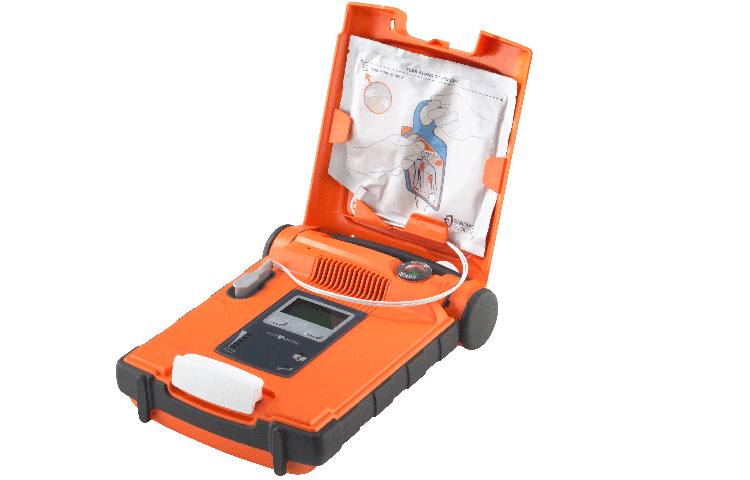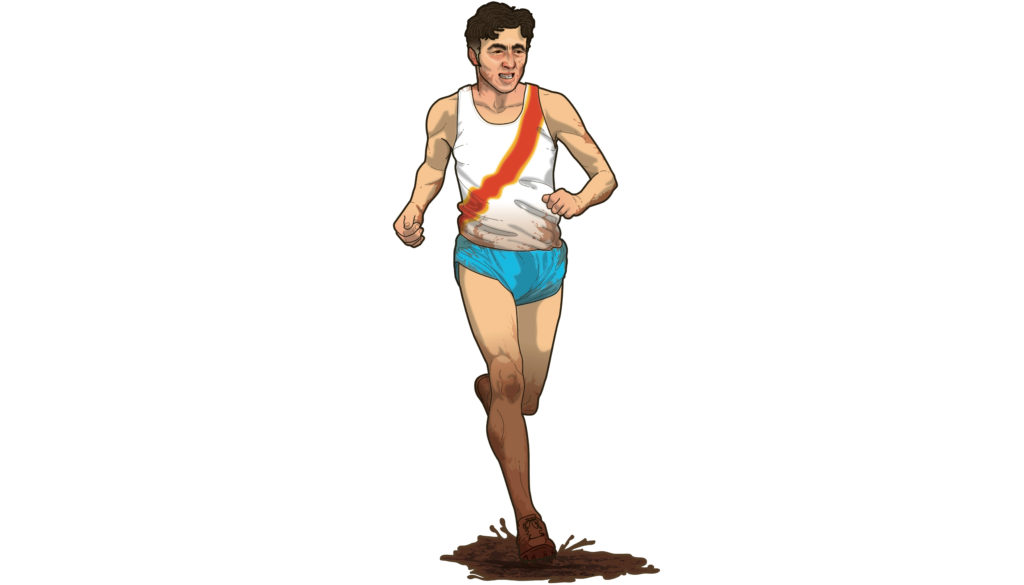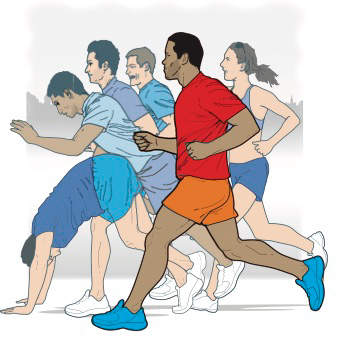
A Cardiac Science AED, like the one used to save Kevin’s life
Just six months after an AED (automated external defibrillator) was installed at Hillingdon Athletic Club in Ruislip, it was used to save a life.
Kevin Twomey, 35, from Hemel Hempstead, was the lucky recipient of life-saving defibrillation when he collapsed just 100 metres from the end of a 20-mile run called the Finchley 20 in Ruislip in March this year.
Two trainee cardiac nurses – one watching and one running past – and club member Nigel Ealand, rushed to help and started chest compressions when they realised Kevin was not breathing.
A third man ran to the club house, which was thankfully close to the finishing line, and got the AED and within a few minutes it delivered a life-saving shock which revived Kevin.
He was rushed to the district hospital by ambulance where he underwent a series of tests. With no history of heart trouble and a non-smoker the cause was not immediately apparent, but, via an angiogram, it was established Kevin had a narrowing of the arteries and he had a stent fitted a week later.
lucky to be here
Now pretty much recovered Kevin talked of his experience. “I think I am very lucky to be here. Lucky that I collapsed so near the finish, that medically trained people were on hand so quickly and that an AED was available. It definitely saved my life.”
Manufacturers Cardiac Science had only just delivered the Powerheart® G5 AED in partnership with the London Ambulance Service who had also just done some basic life support training with members.
Cardiac Science Managing Director, Shaun Ingram, said you never know when emergencies will strike. “You hope never to use an AED, but in this case it did its job. It is intuitive to use so even in the heat of the moment a first time rescuer can be talked through the steps. It only ever gives a shock if it needs to.”
David Smith, Chairman of Hillingdon Athletic Club, said: “As a club it is our responsibility to show a duty of care to our members and guests so when we received a donation from a former member we spent it on an AED. We are so glad now it was in place on the day.”
The Finchley 20 is the oldest road running race in Britain. It has been going for 83 years and regularly attracts hundreds of runners.
Sudden cardiac arrest can strike at any time. David Seath lost his life at this year’s London Marathon after a suspected cardiac arrest and Alan Lumley collapsed at the Wilmslow Half Marathon in Cheshire in April and could not be revived.
Cardiac Science is working with ‘run’ organisers across the country to support ambulance services and provide more AEDs at strategic points during a race.
Kevin Twomey added: “This could happen to anyone at any time so it’s good to hear that work is being done to make sure people taking part in events like this have access to a defib in an emergency wherever you are.”
Cardiac Science develops, manufactures, and markets automated external defibrillators (AEDs) and provides a portfolio of training, maintenance, and support services for AEDs. For more information visit cardiacscience.co.uk






